Sustainable Living
Eco-Friendly Living
Choose plants, protect the planet, and embrace a kinder future — a way of living that nurtures your health, respects all life, and ensures sustainability for generations to come.

Environmental Sustainability

Animal Welfare

Human Health
Why Animal-Based Products
Are Not Sustainable
Animal-derived products affect our planet, health, and ethics across multiple industries. From food to fashion, the impact is both severe and far-reaching.
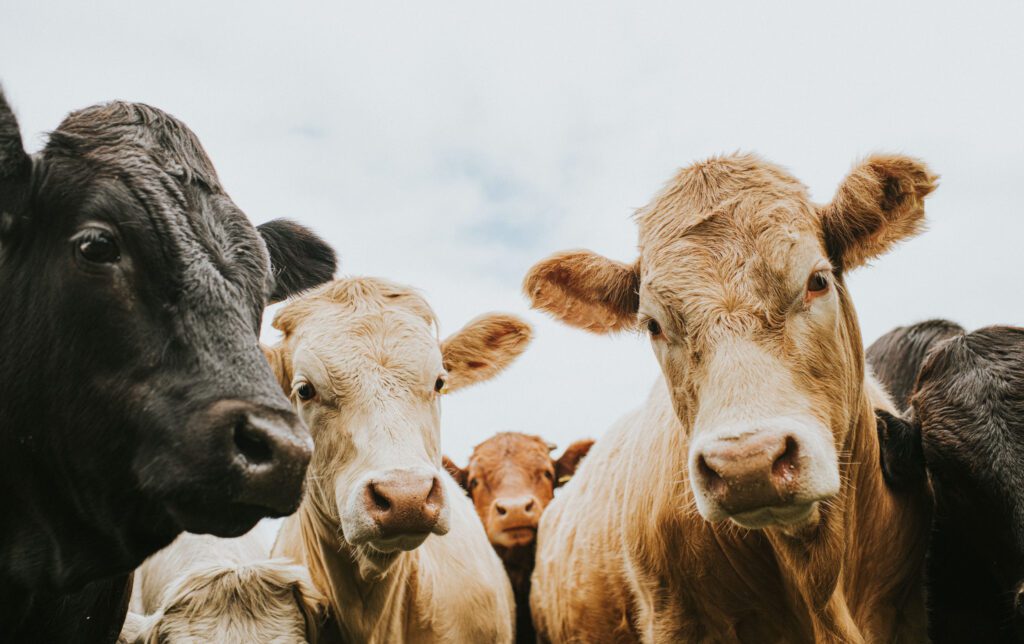
High Greenhouse Gas Emissions
- Livestock (especially cows and sheep) produce large amounts of methane, a greenhouse gas far more potent than CO₂.
- According to the FAO, animal agriculture contributes to around 14–18% of global greenhouse gas emissions, comparable to the entire transport sector.

Excessive Land Use
- Animal farming requires far more land than crop farming.
- Large areas of forest are cleared for grazing or growing animal feed (e.g., soy and corn for cattle), driving deforestation and biodiversity loss.
- For example, producing 1 kg of beef can require up to 25 kg of feed and large grazing areas.
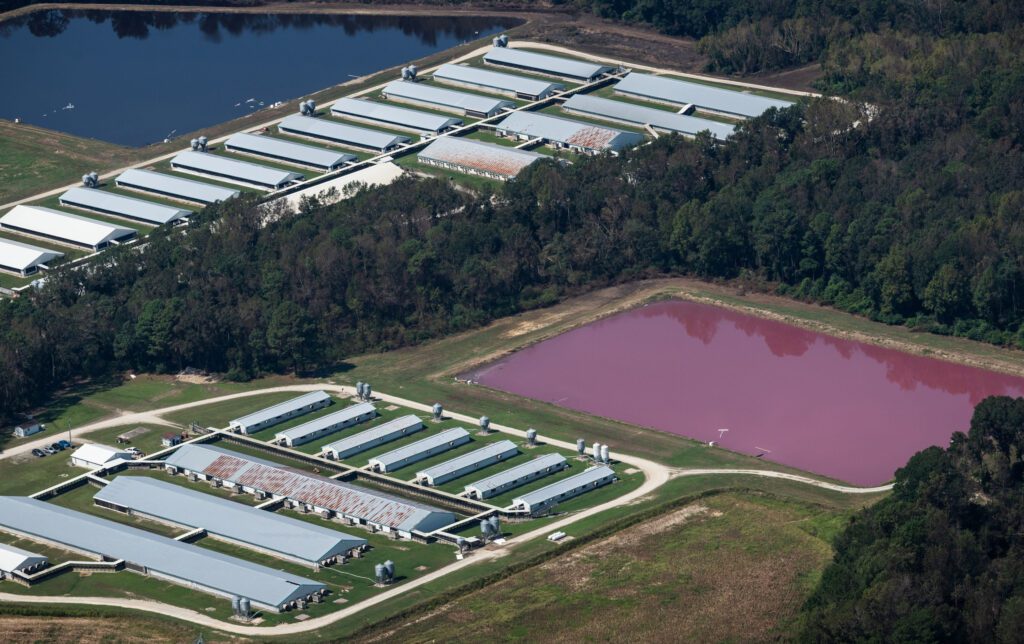
Water Consumption
- Raising animals and producing feed consumes vast amounts of water.
- Beef production, for instance, can take 15,000 liters of water per kilogram of meat, compared to about 1,500 liters per kilogram of wheat.
- This contributes to water scarcity in many regions.
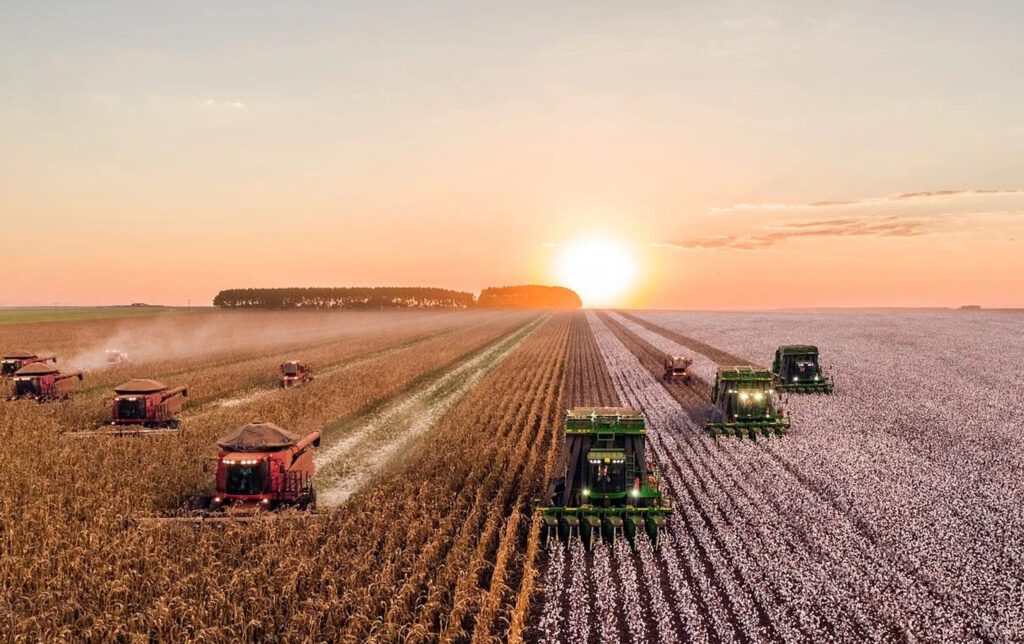
Inefficient Food Conversion
- Animals convert plant calories into meat, milk, or eggs inefficiently.
- On average, livestock use about 6–10 calories of feed to produce 1 calorie of meat.
- This makes animal farming an inefficient way to feed a growing global population.

Biodiversity Loss
- Expanding pastureland and feed crops destroys natural habitats.
- Animal agriculture is a leading driver of species extinction due to deforestation (e.g., Amazon rainforest clearing for cattle ranching).
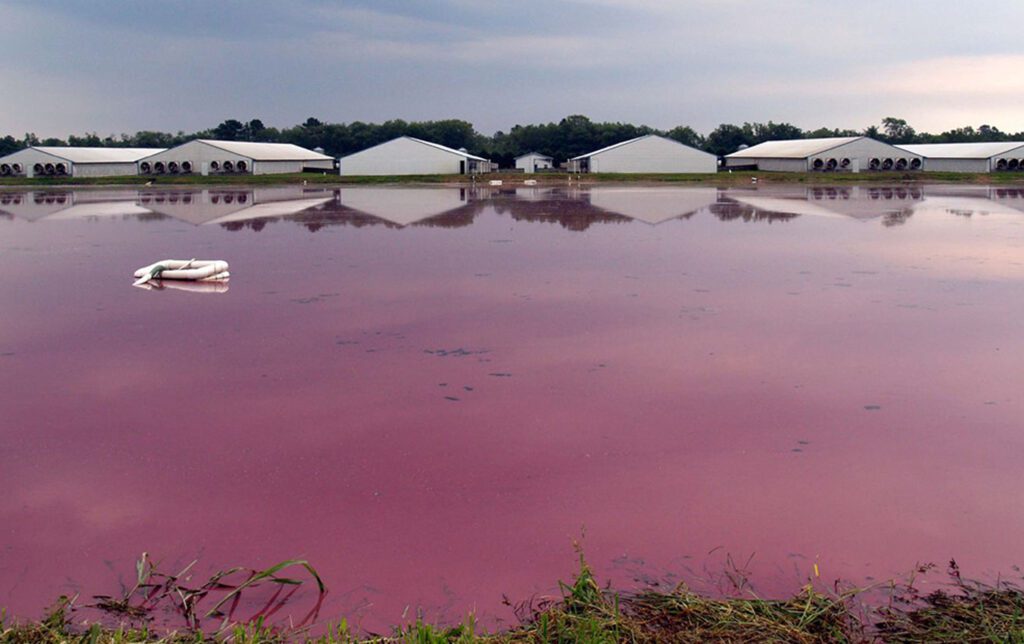
Pollution
- Manure runoff pollutes rivers and groundwater with nitrogen and phosphorus, leading to “dead zones” in oceans.
- Antibiotic overuse in livestock farming also contributes to antimicrobial resistance, a major global health threat.
Ethical and Social Concerns
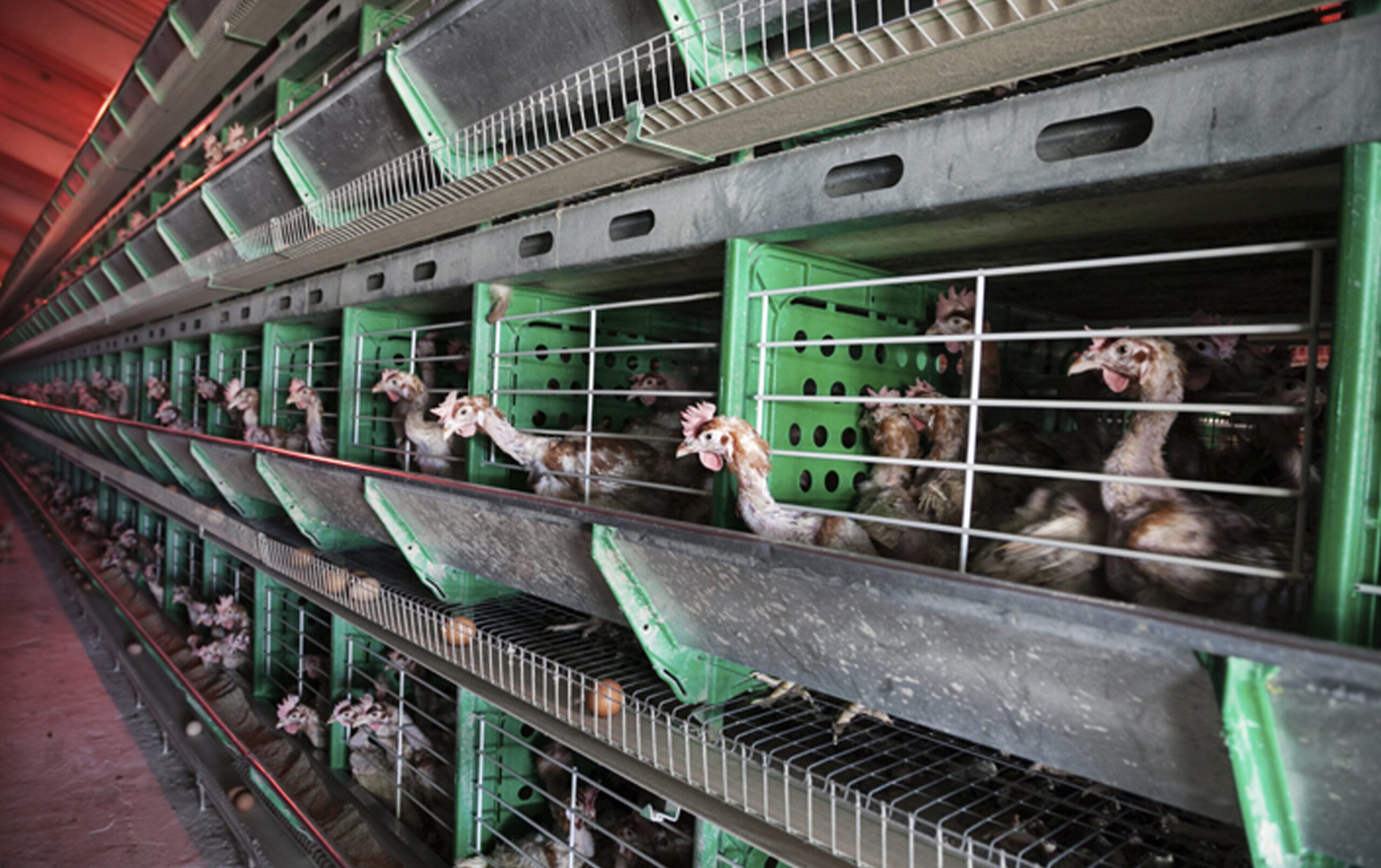
Animal Welfare
- Industrial farming (Factory Farming) confines animals in small spaces, causing stress and suffering.
- Many animals live in inhumane and unhygienic conditions until slaughter.
- This raises serious ethical questions about the right of animals to live without unnecessary pain.
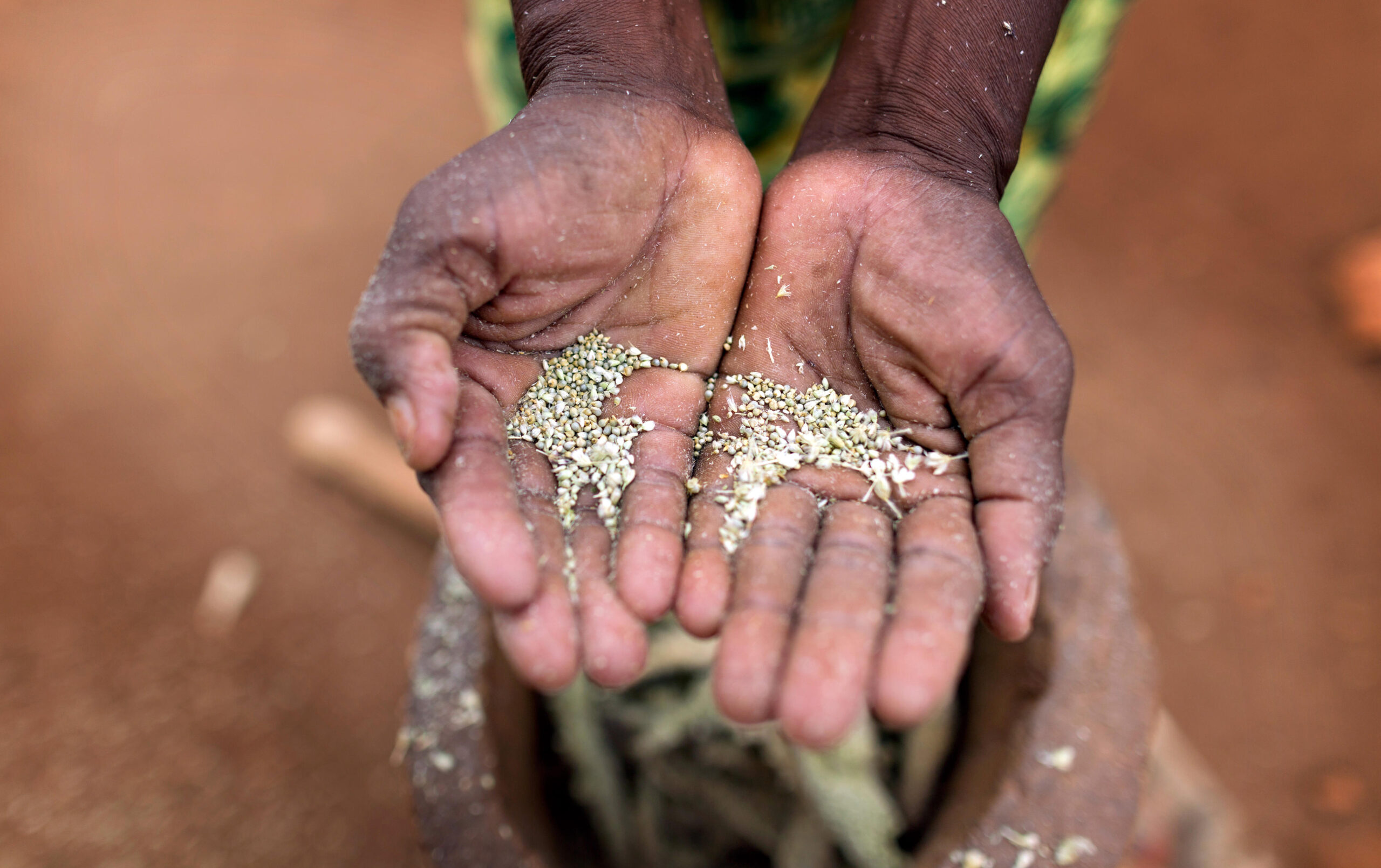
Social Justice and Food Security
- Huge amounts of grains and water are used to feed livestock instead of being consumed directly by people.
- This happens while millions around the world face hunger and malnutrition.
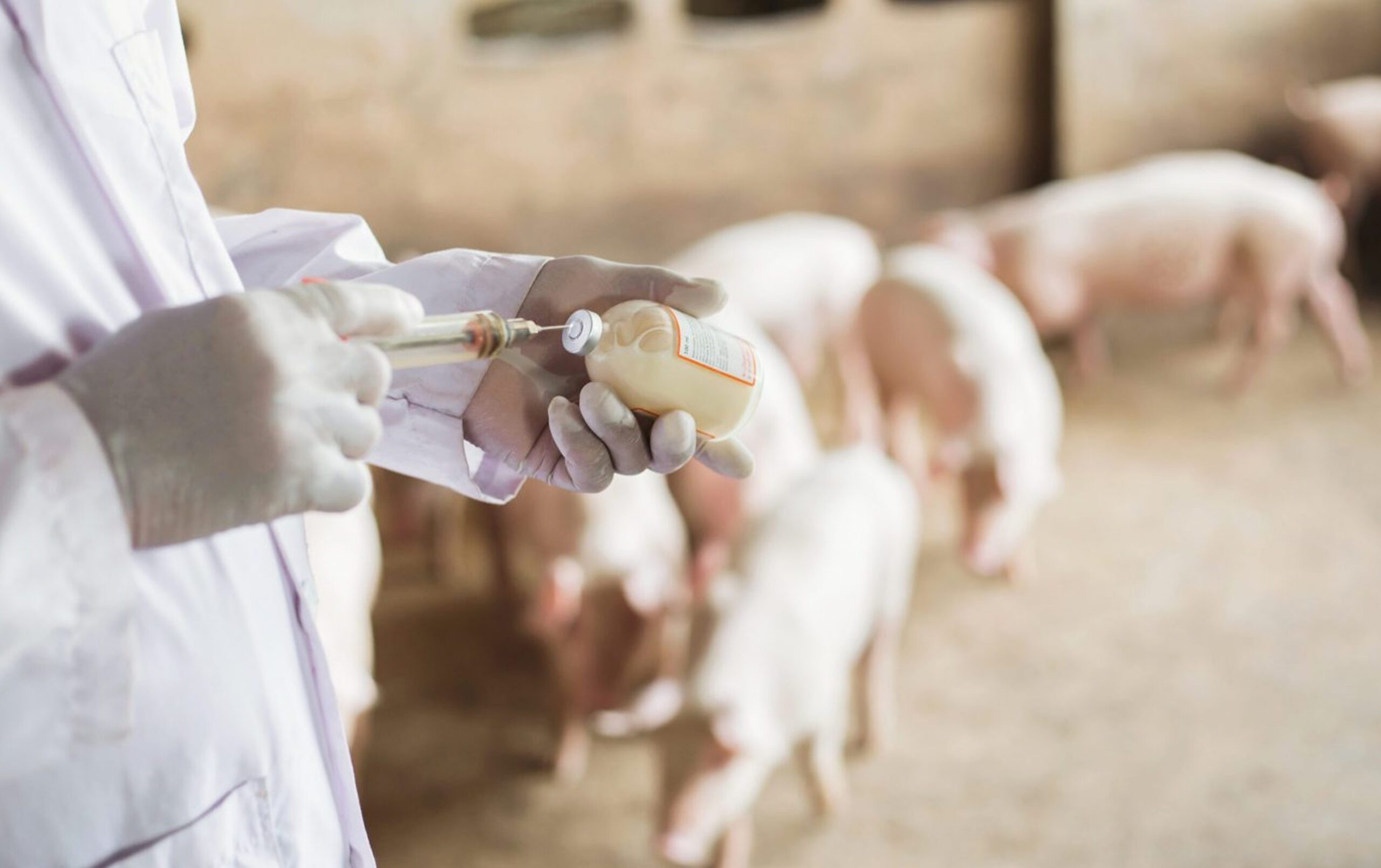
Public Health and Cultural Issues
- Overconsumption of red and processed meat is linked to diseases like cancer, diabetes, and heart conditions.
- Heavy use of antibiotics in livestock leads to antimicrobial resistance, a growing global health threat.
- In many cultures, high meat consumption is associated with wealth and social status, but this lifestyle places an ethical and environmental burden on the rest of the world.
Fashion’s Reliance on Animal Products
and Its Impact on Sustainability
10%
of the world’s carbon emissions come from the fashion industry.
92 m
tonnes of waste are generated by the fashion industry every year.
20%
of global water pollution is caused by the fashion industry.
Down Feathers
Often perceived as a harmless by-product of the duck and goose meat industry, down feathers are far from innocent. Behind their softness lies a practice that causes immense suffering to animals.
Leather
Leather is often perceived as merely a by-product of the meat and dairy industries. In reality, it is a vast, multi-billion-pound sector built on exploitation and cruelty toward animals.
Fur
In prehistoric times, wearing animal skins and fur was essential for survival. Today, with the availability of countless innovative and cruelty-free alternatives, the use of fur is no longer a necessity but an outdated practice marked by needless cruelty.
Wool
Wool is far from a harmless by-product. Its production is closely tied to the sheep meat industry and involves practices that cause significant suffering to animals.

Go plant-based—because choosing a plant-based lifestyle is a key step toward sustainable living, creating a healthier, kinder, and more peaceful world for all.
Plant-Based, Because the Future Needs Us.
A healthier body, a cleaner planet, and a kinder world all begin on our plates. Choosing plant-based is a powerful step toward reducing harm, healing nature, and living in alignment with compassion.
A plant-based lifestyle isn’t just about food—it’s a call for peace, justice, and sustainability. It’s how we show respect for life, for the earth, and for future generations.
The Connection Between Veganism and Sustainability .
In 2021, the IPCC Sixth Assessment Report issued a “code red” for humanity. Since then, the climate crisis has continued to intensify, with record summer temperatures, rising sea levels, and melting polar ice caps. Our planet faces severe threats, and urgent action is required to mitigate the damage.
Environmental Motivation
Veganism often begins as a commitment to animal rights, but for many, particularly Gen Z, environmental concerns have become a key motivation. Meat and dairy production contributes around 15% of global greenhouse gas emissions, and a vegan diet can reduce an individual’s environmental footprint by approximately 41% compared to a meat-based diet. Driven by ethical considerations, veganism reflects a broader refusal to participate in the exploitation of animals, humans, and the environment.
Adopting a vegan lifestyle often inspires eco-friendly choices beyond diet, from reducing plastic waste and pollution to choosing ethical clothing and sustainable products. Informed by research into agricultural practices and environmental studies, vegans prioritize ethical and responsible consumption in all areas of life, incorporating sustainability into their everyday decisions and overall lifestyle.
Sustainable Consumption Beyond Food
Sustainable consumption extends far beyond the food we eat. It encompasses how businesses operate, their responsibilities toward employees, customers, and the environment, as well as the lifecycle of the products they produce. Addressing climate change requires looking at the full impact of our choices, from production and usage to disposal, ensuring that every step supports environmental stewardship.
Adopting a circular approach—reusing products, minimizing waste, and replenishing natural resources—is as crucial as dietary choices in combating climate change. As experts in e-waste management emphasize, basic recycling is not enough; we must reuse what already exists and restore the planet rather than depleting it. Implementing a circular economy across sectors—from food and fashion to technology—helps reduce biodiversity loss, conserve resources, and allows ecosystems to regenerate, creating a more sustainable future for all.
Preserving Natural Resources
Animal agriculture is not only a major source of greenhouse gas emissions, but it also demands significant energy for processing, preparation, and transportation. Meat and dairy products require extensive resources before reaching our plates, whereas plant-based foods need far less processing, making them more energy-efficient and environmentally friendly, while also reducing harm to animals.
A plant-based diet also plays a crucial role in conserving water. Agriculture consumes more water than any other global industry, accounting for roughly 70% of freshwater use. When combined with the resources needed to produce fast fashion, vehicles, and electronic devices, it becomes clear that shifting toward plant-based and sustainable consumption can dramatically reduce environmental impact. Adopting such a lifestyle promotes ethical use of resources and helps combat climate change on multiple fronts.
Our desire to make greener and more sustainable choices extends far beyond simply adopting a plant-based diet. While many people initially embrace veganism out of empathy and compassion for animals, this lifestyle choice is increasingly connected to broader environmental concerns. By reducing reliance on animal agriculture, which is a major contributor to greenhouse gas emissions, deforestation, and water consumption, individuals can significantly lower their ecological footprint. Moreover, choosing a vegan lifestyle often encourages greater awareness of other sustainable practices in daily life, from reducing waste and conserving energy to supporting ethical products and companies. In this way, veganism not only reflects a commitment to animal welfare but also serves as a gateway to more conscious, environmentally responsible living, highlighting the interconnectedness of diet, lifestyle, and planetary health.
VEGANISM & THE FUTURE OF SUSTAINABILITY
92%
of the global freshwater footprint comes from agriculture and related harvesting industries.
If the world adopted a vegan lifestyle, it could save:
- 8 million human lives saved by 2050.
- Reduce greenhouse gas emissions by two-thirds.
- Realizing $1.5 trillion in healthcare savings and avoided climate-related damages
A plant-based lifestyle
can save our planet!
Adopting a vegan diet can reduce global warming by up to 75%, equivalent to cutting private vehicle travel.
of global agricultural land could be freed if the world adopted plant-based diets — unlocking an area the size of the United States, China, and the European Union combined.
Eighty-two percent of children suffering from hunger reside in countries where crops are primarily used to feed livestock, which is subsequently consumed in Western nations.
Simple Steps Toward Sustainable Eating
Sustainability is a global challenge, but small everyday choices can create big impacts. These changes not only help the planet but also benefit our health. Start with a few and see what works for you.

Reduce Waste
Less food waste means fewer greenhouse gases, cleaner communities, and lower bills. Plan wisely, buy only what you need, and make every meal count.

Sustainable Partners
Supporting companies with sustainable practices is a smart choice that benefits everyone over time. Look for brands that minimize waste, use eco-friendly packaging, and treat employees, communities, and the environment with respect. Do your research before you buy to ensure your choices make a positive impact.

Better Food Choices
Opting for local produce, locally made foods, and plant-based ingredients generally lowers environmental impact. Meat, however, has one of the highest footprints due to methane emissions and the vast land, water, and energy it requires. Choosing more fruits, vegetables, legumes, and grains supports local farmers, reduces resource use, and helps build a healthier, more sustainable food system.
Our Top Tips for Sustainable Eating.
Focus on Plants
When planning your meals, make healthy plant-based foods the centerpiece of your diet. Try incorporating meat-free meals or even full days without animal products into your weekly routine. Explore a variety of plant-based recipes to keep your meals interesting, flavorful, and nutritious, while also reducing your environmental impact.
Variety is Key
Aim to include a wide range of grains, nuts, seeds, fruits, and vegetables in your diet. Each food group offers unique essential nutrients, vitamins, and minerals that contribute to overall health. By embracing variety, you not only meet your nutritional needs but also enjoy more flavors, textures, and colors in your meals, making healthy eating both satisfying and sustainable.
Reduce Food Waste
Did you know? About 30% of the food we buy is wasted, especially fruits and vegetables, which impacts both the environment and your wallet. Planning meals and making a shopping list can cut waste, while using leftovers—either the next day or frozen for later—saves money and helps the planet.
Seasonal & Local
Choose fruits and vegetables that are in season, and if not available, opt for frozen, canned, or dried varieties—they retain most of their nutrients. Include more fruits and vegetables in every meal and snack, and choose whole grains whenever possible to boost your fiber intake and support overall health.
Go Plant-Based Alternatives
Start including plant-based drinks and yogurt alternatives in your daily routine. Opt for products fortified with calcium and vitamin B12 to ensure proper nutrition. Use them in cooking, on cereal, in smoothies, or in tea and coffee—just as you would with dairy products.
Replace Meat with Healthy Plant Proteins & Vegetables
Incorporate plant-based proteins like tofu, soy mince, beans, lentils, and nuts, along with plenty of vegetables, to add bulk and nutrition to your meals. Gradually reduce the amount of animal products in your favorite recipes to make them healthier and more sustainable.










































